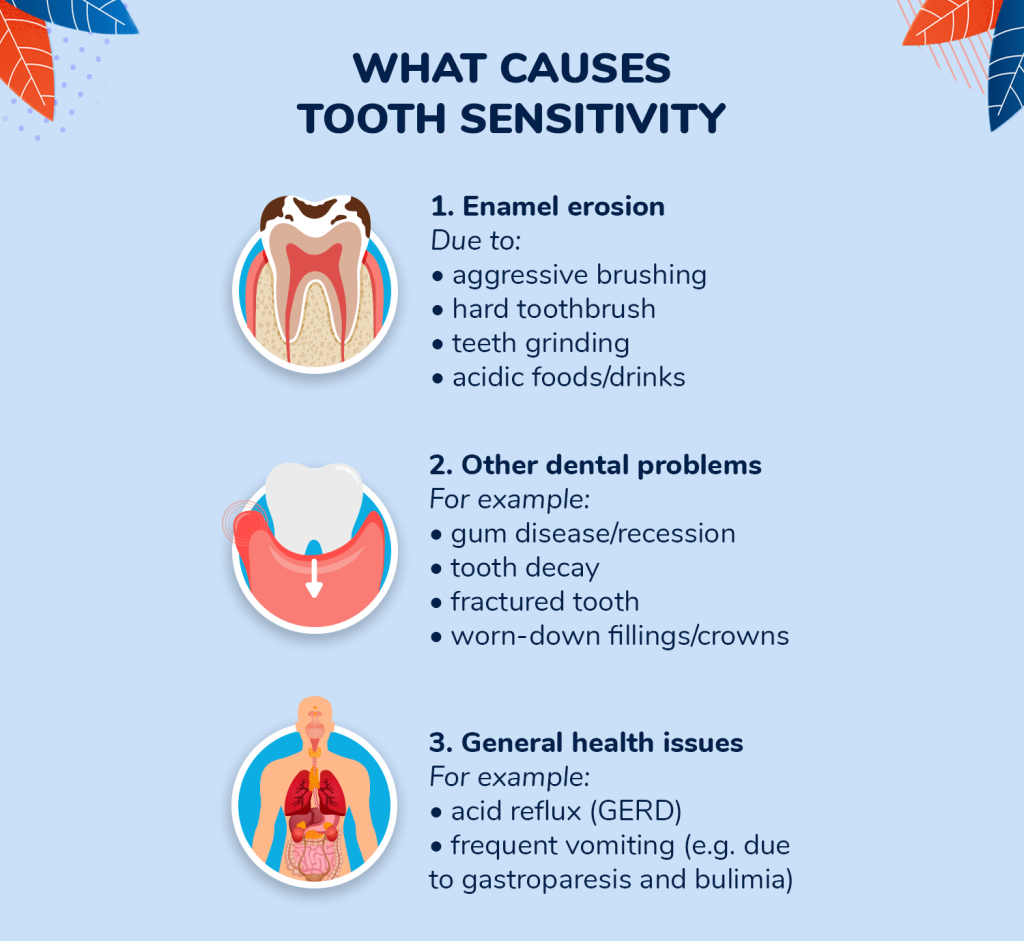 If you are one of the over 3 million Americans who suffer from cold, heat, or sweet tooth sensitivity, the first thing you should do is talk to your dental professional to find a solution. In the meantime, here is some helpful information.
If you are one of the over 3 million Americans who suffer from cold, heat, or sweet tooth sensitivity, the first thing you should do is talk to your dental professional to find a solution. In the meantime, here is some helpful information.
Tooth Sensitivity and Importance of Enamel
Tooth sensitivity to heat and cold occurs when the protective layers of your teeth—enamel on the crown and cementum on the root—become compromised, exposing the underlying dentin. This dentin contains thousands of microscopic tubules that connect to the tooth’s nerve center, the pulp. When hot or cold substances make contact with these exposed tubules, they stimulate the nerve endings, triggering that characteristic sharp, sudden pain. This common dental issue affects millions of people and can transform simple pleasures like enjoying ice cream or sipping hot coffee into uncomfortable experiences.
Causes
Several factors contribute to dental hypersensitivity, with gum recession being a primary culprit. As gums recede due to aggressive brushing, periodontal disease, or natural aging, the roots of teeth become exposed. Unlike the crown of your tooth, which is protected by hard enamel, the root is covered by a thinner substance called cementum that wears away more easily. Additionally, enamel erosion from acidic foods and beverages, teeth grinding, or excessive use of whitening products can thin this protective barrier, making your teeth increasingly reactive to temperature changes.
When the enamel on your teeth is damaged, it can expose the very sensitive inner layer of your teeth. Once that layer is damaged, any kind of sweet foods, drinks, and hot and cold substances will cause that sharp pain. Unlike the crowns of your teeth being covered with enamel, the root of your teeth is covered with cementum. Cementum is a specialized bony layer of connective tissue covering the dentin of the part of a tooth normally within the gum. When the enamel or cementum wears away, the nerves within the tooth are exposed. This is what causes the sensitivity.
Common causes of erosion are:
- You brush with too much gusto.
- You use abrasive toothpaste.
- You eat acidic foods.
- You grind your teeth.
- You use tooth-whitening toothpaste.
- You have bulimia.
- You have dry mouth.
Treatment
The good news is that temperature sensitivity is often manageable with proper dental care. Using desensitizing toothpaste containing compounds like potassium nitrate or stannous fluoride can help block pain signals from traveling from the tooth surface to the nerve. For more immediate relief, dentists may recommend in-office treatments such as fluoride varnishes, bonding agents, or sealants that help rebuild protective layers over exposed dentin. In severe cases, procedures like root canals might be necessary if sensitivity stems from deep decay or infection. Most importantly, addressing tooth sensitivity early prevents more serious dental problems while restoring your ability to enjoy hot and cold foods without wincing.
Your dentist may suggest that the filling of cavities may help.
If this is not the problem, the following may help with the pain:
- Desensitizing toothpaste. After several applications, desensitizing toothpaste can sometimes help block pain associated with sensitive teeth.
- Fluoride
- Desensitizing or bonding
- Surgical gum graft
- Root canal
To prevent sensitive teeth from recurring, brush your teeth twice daily with a soft-bristled toothbrush and fluoride toothpaste. And don’t forget to floss daily. Use gentle strokes, rather than vigorous or harsh scrubbing, and avoid using an abrasive toothpaste. If you grind your teeth, ask your dentist about a mouth guard. Tooth grinding can fracture teeth and cause sensitivity.
We provide Preventative Dental Care
Consistent checkups allow us to diagnose oral diseases before they spread and become larger problems. Taking care of your teeth is an essential part of maintaining your overall health and well-being. By implementing a consistent dental preventive care routine, you can significantly reduce the risk of cavities, gum disease, and other oral health issues. Brush your teeth at least twice a day with fluoride toothpaste, and don’t forget to floss daily to remove plaque and food particles from between your teeth. Additionally, consider using an antiseptic mouthwash to kill bacteria and freshen your breath.
> Learn More
Contact us (859) 586-7900 for more information or to make an appointment!
—
 About Torbeck Dental
About Torbeck Dental
Torbeck Dental treats every patient with dignity and excellent care. We are highly trained dental professionals with exceptionally friendly and helpful service. We understand that for many, visiting a dentist can be a stressful experience so our comfortable surroundings and compassionate staff will ease any fears you may have. We are here to help you achieve your happiest and healthiest smile! Our dental team are a group of experienced professionals using the latest treatments. Our team has the professional experience to realize that there is no such thing as one-size-fits-all treatment, so we never use a one-size-fits-all approach to your dental plan. We provide quality and personalized oral health care while keeping your individuality in mind. Our goal is to improve and maintain your oral health so you can smile with confidence!

